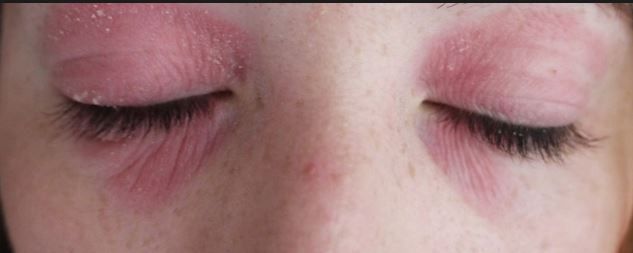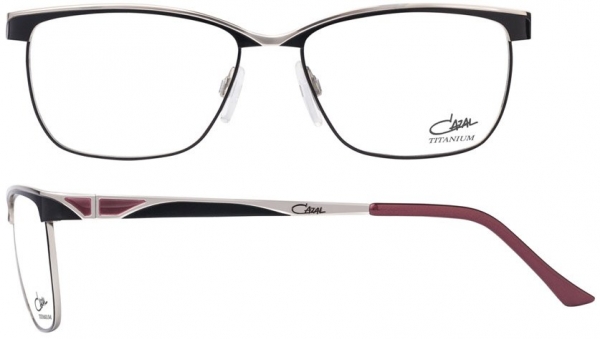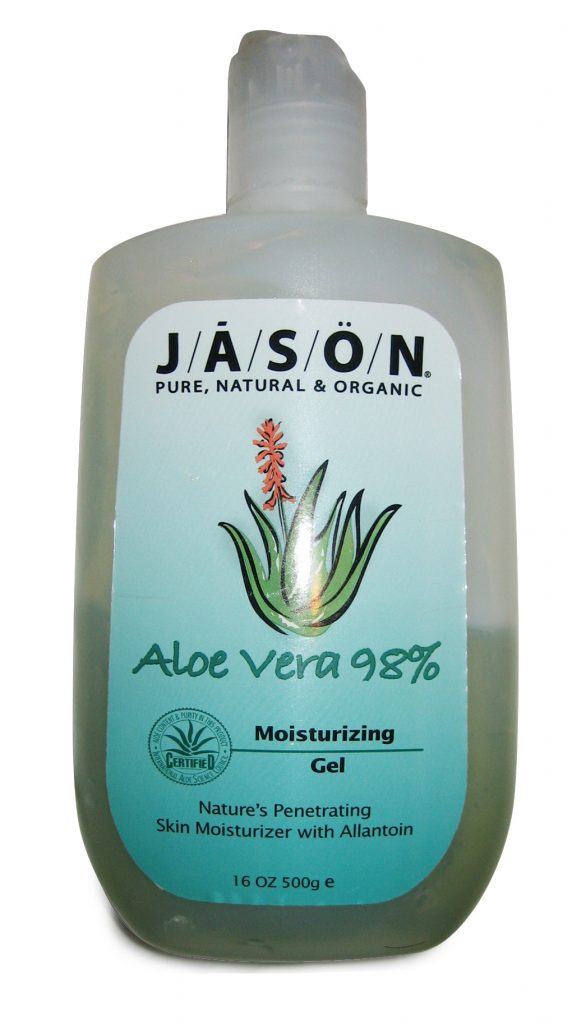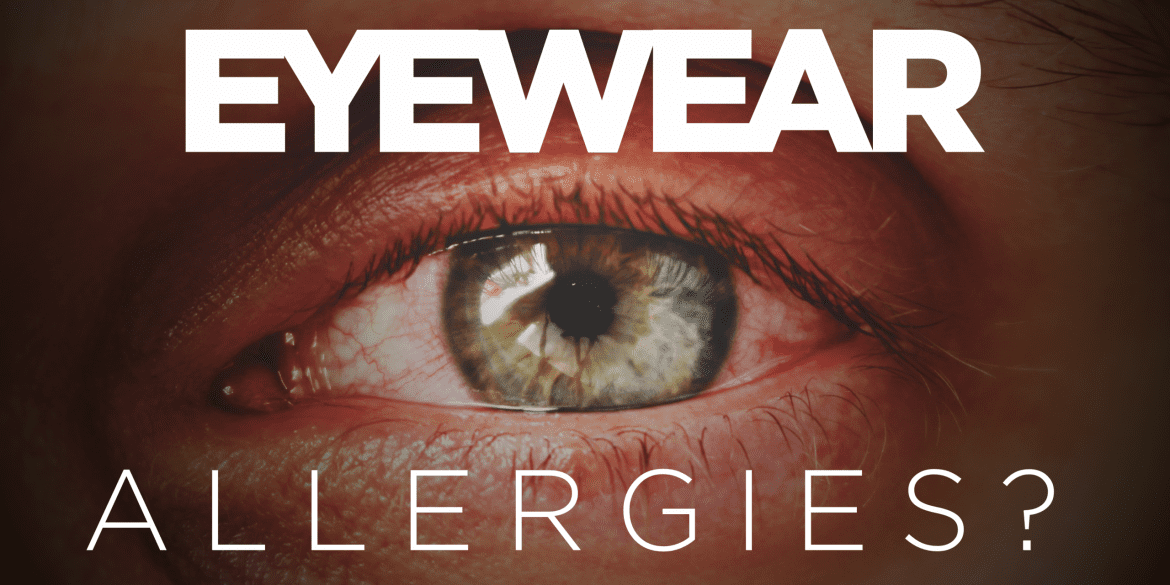
Although not common, it’s possible to have an allergic reaction to your prescription eyewear.
The reaction’s bound to be caused by one of the various materials used to manufacture and coat the lenses, frames, and nose pads. The result can range from a mild skin irritation to oozing, blister-like sores around the eyes.
Causes of allergic reactions to eyeglasses
If you were to be allergic to glasses, skin irritation can develop in places where the glasses contact your skin. This can include the frames, as well as the nose pads.
This irritation is known as contact dermatitis: a skin rash caused by exposure or direct contact to certain substances or chemicals.

Potential allergens include:
- rubber
- plastics
- solvents
- dyes
- waxes
- metals
- plasticizers
- cosmetics
- nickel
- UV stabilizers
- plastics
The last three are of particular significance, as they are all commonly found in eyewear.
Nickel allergies
Nickel, especially, is a lead contributor to those who find they have an allergy to prescription eyeglasses. It can be challenging, then, to avoid exposure, and once an allergy to nickel develops, it never goes away.
Many who find they are allergic to costume jewelry often have an allergy to nickel. The solution: eyeglass frames that are hypo-allergenic and nickel-free.
UV stabilizers allergies
UV stabilizers are a polycarbonate material often used to make anti-reflective and scratch-resistant lenses. These too can cause an allergic reaction, most notably irritation to the eyes versus the skin around them.
Plastics allergies
Additionally, plastics used to make the frames, or silicone used to make the nose pads, may cause irritation on the cheeks and across the bridge of the nose. Like a nickel allergy, an allergy to plastic will produce similar symptoms. Choosing hypo-allergenic frames or frames made of titanium may be a viable option.
Symptoms of an eyewear allergy
Potential indicators of an eyewear allergy include:
- itchiness
- discoloration
- tearing
- light sensitivity
- blisters
- ring-shaped rash around the eyes
- redness
- swelling
- irritation
- sores
- rash
Understanding the difference between an irritation and an allergy is the first step in determining the cause of your issue. Prescription eyewear can cause similar symptoms to that of an allergy, but the reason may be friction or sweat caused by heat or constant contact. If the problem persists or worsens, schedule an appointment with a licensed medical professional.
Diagnosis and treatment of an eyewear allergy
Avoiding contact with the potential allergen is the best way to diagnose any type of allergy.
- First, discontinue wear, if possible. If you cannot go without prescription eyeglasses for any length of time, however, a visit to your health care is advised.
- From there, your doctor may refer you to an allergy specialist or a dermatologist who will work to diagnose the issue, most likely by administering a patch test to determine to what, specifically, you are allergic.
Once an eyewear allergy is diagnosed, it will be a lot easier to avoid certain eyeglasses and pick ones that you know will not irritate your skin.
For instance, if you discover you have an allergy to nickel but like the look of metal prescription frames, choose stainless steel or another hypo-allergenic metal like titanium.

Be sure to check the material used to make the hinges and metal screws – they may contain nickel, as well. Coating them with clear nail polish may help make the eyeglasses wearable without resulting in an allergic reaction.
If the problem is an allergy to silicone, the ingredient commonly found in the nose pads, replace them with vinyl ones or cover them with vinyl tape.
There a number of options to help alleviate symptoms associated with an eyeglass allergy, chief among them is a corticosteroid applied topically. Nonsteroidal creams and OTC oral antihistamines like Zyrtec, Benadryl, Claritin, or Allegra should also provide relief, as will oral corticosteroids like prednisone in more severe cases.
In extreme cases, where avoiding specific types of frames or eyewear is not feasible, the immunosuppressant tacrolimus may provide long-lasting relief when applied as a topical ointment. Typically prescribed to those with severe eczema, tacrolimus has proven to work on contact dermatitis resulting from eyeglasses, as well.
This form of treatment should not be used by those with any sort of weakened immune system and should be used exactly as directed by your doctor or pharmacist.
Potential home remedies
If you want to soothe your symptoms in a more holistic way or to give yourself some relief until you can get an appointment with your doctor, there are a few natural remedies to try:

- Apply compresses of either cool water or Burow’s, an astringent solution commonly used to relieve poison ivy, sumac, and oak.
- Calamine lotion and aloe may also lessen irritation when applied to the affected areas, as can using moisturizing lotions like mineral oil, shea butter, cocoa butter, or Vaseline.
- Emollient creams, which tend to contain more oil and, therefore, help the skin hold moisture longer, can help create a barrier between your face and eyeglass frames, which, in turn, can limit triggering an allergic reaction.

